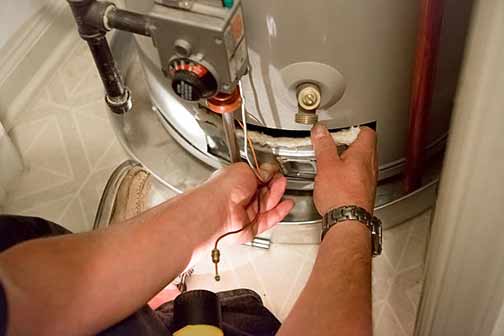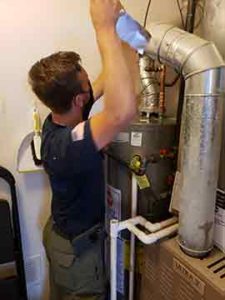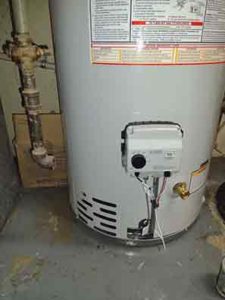
Understanding the Importance of a Functional Water Heater in Chicago’s Climate
In Chicago, where the winters can be particularly harsh, having a reliable water heater is essential. A functional water heater ensures that residents have access to hot water for bathing, cooking, and heating their homes. Understanding the importance of this appliance can help homeowners prioritize its maintenance and address any issues promptly. Given the city’s unique climate conditions, the role of a water heater extends beyond mere comfort, becoming a necessity for survival during freezing temperatures.
Recognizing Common Water Heater Issues Faced by Chicago Residents
Water heaters, like any other household appliance, can experience a variety of issues. Some common problems include lack of hot water, strange noises, leaks, and fluctuating water temperatures. Recognizing these issues early can prevent further damage and costly repairs. In Chicago, where water heaters are subjected to extreme weather changes, these problems can be exacerbated, making timely identification and resolution crucial for maintaining household comfort and safety.
Diagnosing Water Heater Problems: A Step-by-Step Guide for Chicago Homeowners
Diagnosing water heater problems involves a systematic approach to identify the root cause. Begin by checking the power supply, as a tripped circuit breaker or blown fuse can cut off electricity to the heater. Inspect the thermostat settings to ensure they are correctly adjusted. Additionally, examine the pilot light in gas heaters, as it may need relighting. For Chicago residents, understanding these diagnostic steps is vital, as local weather conditions can influence the performance and lifespan of water heaters.
Addressing Lack of Hot Water: Solutions for Chicago’s Cold Winters
If your water heater is not producing hot water, it could be due to a faulty heating element or a malfunctioning thermostat. Electric water heaters may require replacing the heating element, while gas heaters might need a new thermocouple. Regular maintenance can help prevent these issues from arising. In Chicago, where hot water is a necessity during winter, addressing these problems promptly ensures continuous comfort and prevents potential health risks associated with cold exposure.
Resolving Strange Noises from the Water Heater: What Chicago Residents Need to Know
Strange noises, such as popping or rumbling, often indicate sediment buildup at the bottom of the tank. This sediment can cause the water heater to overheat and produce unusual sounds. Flushing the tank periodically can help remove sediment and prevent these noises. For Chicago homeowners, understanding the impact of local water quality on sediment accumulation is crucial for effective water heater maintenance and noise reduction.
Fixing Water Heater Leaks: Preventing Water Damage in Chicago Homes
Leaks are a common issue that can lead to significant water damage if not addressed promptly. Inspect the tank and its connections for any signs of leakage. Tightening loose connections or replacing worn-out parts can often resolve the problem. In severe cases, replacing the entire water heater tank may be necessary. In Chicago, where water damage can exacerbate the challenges of winter, addressing leaks quickly is essential for preserving home integrity and safety.
Dealing with Fluctuating Water Temperatures: Maintaining Comfort in Chicago
Inconsistent water temperatures can be frustrating and are often caused by a faulty thermostat or a broken dip tube. Adjusting or replacing the thermostat may resolve the issue. If the dip tube is broken, it will need to be replaced to restore consistent water temperatures. For Chicago residents, maintaining consistent water temperatures is vital for comfort, especially during the city’s cold months.
Considering Chicago’s Climate in Water Heater Maintenance: Tips for Optimal Performance
Chicago’s climate, characterized by cold winters and humid summers, can impact the performance of water heaters. Insulating the water heater and its pipes can improve efficiency and prevent freezing during the winter months. Additionally, regular maintenance checks are crucial to ensure the heater operates optimally throughout the year. Understanding local climate effects on water heaters allows Chicago homeowners to implement effective strategies for maintaining performance and efficiency.
Implementing Preventive Maintenance Strategies for Water Heaters in Chicago
Preventive maintenance is key to extending the lifespan of your water heater and avoiding costly repairs. Regularly inspecting the unit for signs of wear, flushing the tank to remove sediment, and checking the anode rod can prevent many common issues. Scheduling annual professional inspections can also help identify potential problems before they become severe. In Chicago, where water heaters face unique challenges due to the climate, preventive maintenance ensures reliability and efficiency.

When to Call a Professional: Expert Help for Chicago Water Heater Issues
While some water heater issues can be resolved with basic troubleshooting, others require professional expertise. If you encounter persistent problems, such as frequent leaks or electrical issues, it’s advisable to contact a licensed Chicago plumber. Professionals have the tools and knowledge to diagnose and repair complex issues safely. In Chicago, where water heater performance is critical during winter, calling a professional ensures safe and effective solutions.
Choosing the Right Water Heater for Chicago Homes: Factors to Consider
When replacing an old water heater, choosing the right model is crucial for efficiency and reliability. Consider factors such as fuel type, capacity, and energy efficiency ratings. Tankless water heaters are an excellent option for those looking to save space and reduce energy consumption. For Chicago residents, selecting a water heater that can withstand local climate conditions and provide reliable service during cold months is essential.
Understanding Energy Efficiency and Cost Savings: Benefits for Chicago Homeowners
Investing in an energy-efficient water heater can lead to significant cost savings over time. Look for models with high Energy Factor (EF) ratings, as they consume less energy and reduce utility bills. Additionally, some energy-efficient models may qualify for rebates or incentives, further offsetting the initial investment cost. In Chicago, where energy costs can be high during winter, choosing an efficient water heater contributes to long-term savings and sustainability.
Exploring Alternative Water Heating Solutions: Eco-Friendly Options for Chicago Residents
For environmentally conscious homeowners, exploring alternative water heating solutions can be beneficial. Solar water heaters and heat pump water heaters are sustainable options that reduce reliance on fossil fuels. While the initial installation cost may be higher, the long-term savings and environmental benefits make them worthwhile investments. In Chicago, adopting eco-friendly water heating solutions aligns with the city’s sustainability goals and contributes to reducing carbon footprints.
Conclusion: Ensuring Reliable Hot Water in Chicago Through Effective Solutions
Ensuring a reliable supply of hot water in Chicago requires understanding common water heater issues and implementing effective solutions. Regular maintenance, timely repairs, and choosing the right water heater can enhance efficiency and reliability. By taking these steps, Chicago residents can enjoy the comfort and convenience of a well-functioning water heater year-round. Addressing local climate challenges and adopting innovative solutions ensures that homeowners are prepared for the city’s harsh winters and fluctuating temperatures.

